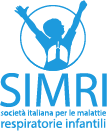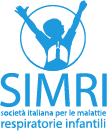

Virtual International Pediatric Pulmonology Research Academy – VIPPRA
Application Link: : https://thoracic.secure-platform.com/a/solicitations/292/home
What is VIPPRA
VIPRA is aimed to be an interactive virtual course to assist international pediatric pulmonology fellows and early career researchers with interest in pediatric lung health to learn and apply scientific research methods.
Participants will learn the fundamentals of developing a research question, various scientific study designs, the basic elements of manual of procedures and develop basic bio-statistical skills.
This interactive course is planned to have two major components;
- online seminars by faculty on research methods every two weeks—the syllabus of this seminar program is attached as a table at the end of the document. These seminars will be interactive and students will be sent reading materials before the seminar day. These seminars will be held through zoom platform.
- hands-on work with a mentor to develop a research protocol and manual of procedures that is ready to be submitted for institutional review board approval. Mentor-mentee pairs are expected to contact each other at least once between the two online seminar times either by email or through zoom to complete the part of the protocol covered by the seminar.
Target Population and Participants
The target population of this program is international pediatric pulmonology fellows or early career researchers with interest in pediatric lung health who would like to embark on or improve scientific research skills in the field of pediatric pulmonology
The program will be announced through ATS Pediatric Assembly members, and the applicants will be asked to submit their CV and expectations from this program as well as their research interests. CVs and personal statements of each applicant will be reviewed by the VIPPRA faculty and final participant list will be decided according to these evaluations.
Mentoring
Two participants will be allocated to each faculty considering their research interests. If we have more than expected number of applicants, applicants from low-middle income countries will be prioritized.
Competencies of VIPPRA
- Understand the basics of epidemiology and clinical research
- Become familiar with the major scientific research methods (cross-sectional, case-control, cohort, and clinical trial)
- Be able to turn clinical observations into research questions to address the issue.
- Be able to pose a research questions that fulfills the FINER criteria and identify the best study design that can be used to answer that question
- Define study population and sampling methodology
- Understand sample size and power calculations
- Describe the importance of valid and reliable measurements and quality control methods
- Describe the major elements of a Manual of Procedures (MOP)
- Value the Importance of ethical conduct of human research
- Understand the use of “dummy tables” before starting data collection.
- Understand data structure and the influence of non-normally distributed data sets.
- Summarize continuous and categorical data
- Understand prevalence, incidence rate, cumulative incidence, odds, and their ratios
- Understand bias, confounding, Type I and Type 2 errors, standard error and confidence intervals
- Differentiate t-test and ANOVA; Wilcoxon and Kruskall- Wallis; chi-squared
- Understand general concepts of logistic regression and linear regression and when repeated measures tests are required.
- Basics of how to write and structure your manuscript
Expectation from the Faculty
- Prepare to give interactive online seminars about research methods to the group of pediatric pulmonologists enrolled in the program
- Provide reading material to the participants before giving the seminar they are assigned to.
- Mentor 2 participants online throughout the course while developing their project proposal and MOP
Expectations from the Participants
- Complete pre-seminar readings
- Participate fully in all course activities; pre-seminar readings, interactive seminar time, individual work on Project
- Fully engage in preparing and presenting your research protocol and MOP at scheduled meetings and at the conclusion of the course.
- Complete the final research protocol ready to be submitted for IRB approval.


